Humans
Sign up for our newsletter
We summarize the week's scientific breakthroughs every Thursday.
-
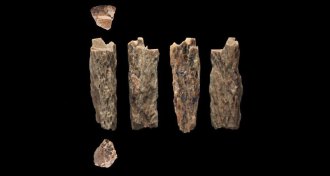 Humans
HumansMeet the first known child of a Neandertal and a Denisovan
DNA analysis of a bone fragment reveals Neandertal movements between Siberia and western Europe.
-
 Anthropology
AnthropologyA fossil mistaken for a bat may shake up lemurs’ evolutionary history
On Madagascar, a type of lemur called aye-ayes may have a singular evolutionary history.
By Bruce Bower -
 Health & Medicine
Health & MedicineThere’s a new cervical cancer screening option
Women now have another choice for cervical cancer screening: getting an HPV test alone every five years.
-
 Science & Society
Science & SocietyCheese found in an Egyptian tomb is at least 3,200 years old
Solid cheese preserved in an ancient Egyptian tomb may be the world’s oldest.
-
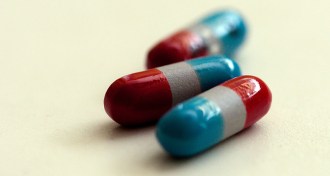 Health & Medicine
Health & MedicineCancer drugs may help the liver recover from common painkiller overdoses
Experimental anticancer drugs may help the liver recover after acetaminophen poisoning.
-
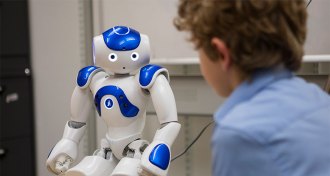 Tech
TechChildren may be especially vulnerable to peer pressure from robots
Elementary school children often endorsed unanimous but inaccurate judgments made by small groups of robots.
By Bruce Bower -
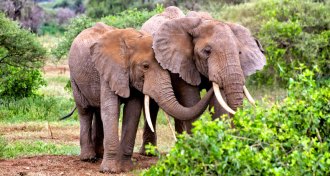 Health & Medicine
Health & MedicineA resurrected gene may protect elephants from cancer
Researchers have found another gene that may play a role in explaining elephants’ cancer resistance.
-
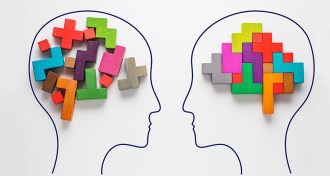 Neuroscience
NeuroscienceStrange brains offer a glimpse into the mind
A close look at unusual brains offers a way to understand how the human mind is constructed, two new books argue.
-
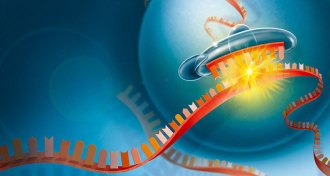 Health & Medicine
Health & MedicineThe first gene-silencing drug wins FDA approval
The FDA just approved the first drug that works via RNA interference.
-
 Health & Medicine
Health & MedicinePregnant women’s use of opioids is on the rise
The rate of opioid use during pregnancy more than quadrupled in 28 U.S. states, prompting physicians to call for increased screening.
-
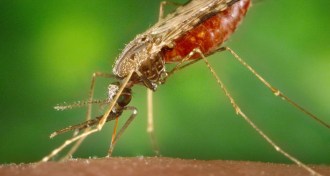 Health & Medicine
Health & MedicineA newly approved drug could be a boon for treating malaria
Tafenoquine could help prevent the recurring form of malaria, but the drug may also be dangerous for people who have a certain genetic mutation.
-
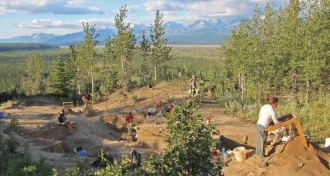 Archaeology
ArchaeologyThe debate over people’s pathway into the Americas heats up
Defenders of an ice-free inland passage for early Americans make their case.
By Bruce Bower